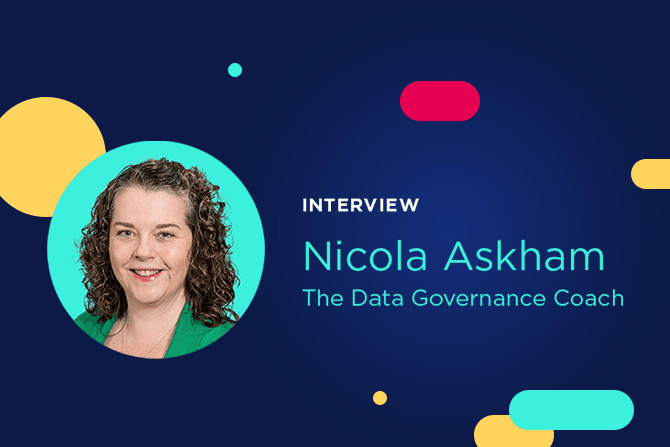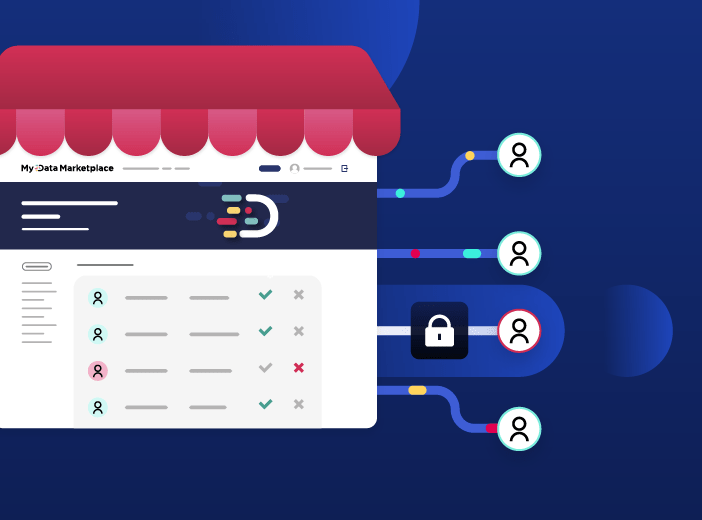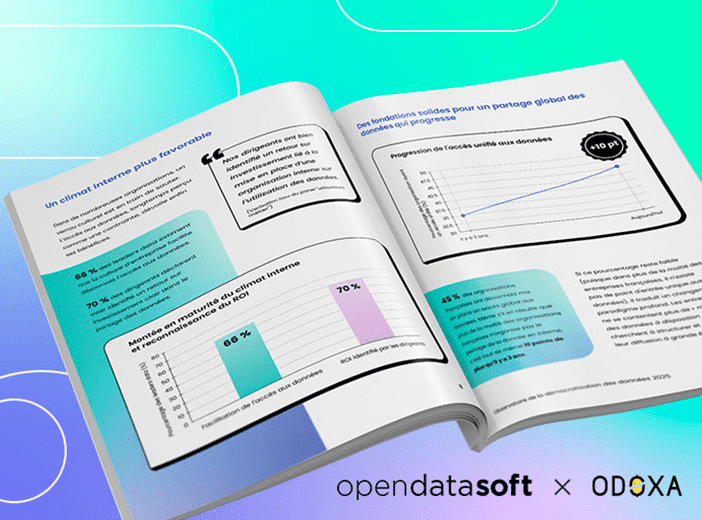Putting in place an effective data governance strategy
What are the practical steps that organizations need to take when it comes to data governance? How can they ensure their programs deliver real business benefits? To learn the secrets of data governance success we interviewed industry expert Nicola Askham.

Successfully becoming data-driven starts with ensuring that your data is high quality, trustworthy, and compliant. That’s why data governance is a vital foundation of your data democratization strategy.
The greater focus on harnessing the power of data is accelerating the growth of data governance programs across organizations in all sectors. To find out more about the topic, we interviewed expert Nicola Askham, also known as the Data Governance Coach. With close to 20 years experience in the field, Nicola is on a mission to help organizations understand and manage their data better through practical coaching, consulting, and training courses. Find out more about Nicola’s work and access a whole range of data governance resources on her website.
How did you get involved in data governance?
It was almost by accident. I was working at a large bank and wondered why the data quality on the project I was involved in was so poor. I went to a conference on data governance and had a lightbulb moment – I realized that we needed to put in place the structures to make people responsible for specific data and its quality. I then moved into consultancy and finally into training and coaching to give people the skills and confidence they need for success.
Over the course of my career I’ve focused on the practical – looking at what companies can do to put in place the right governance frameworks for their individual organization. Every business is different, so you have to take charge of your data governance program and shape it to meet your unique needs. You have to be involved, building your internal skills and resources over the long-term.
Why is data governance now so important to organizations? What are the benefits?
When I started my career data governance was confined to a few regulated industries, such as financial services, where companies had to put in place controls on their data to meet compliance targets. A lot of the time it was just seen as a cost, so was done at quite a basic level.
What’s changed is that everyone has woken up to the importance of becoming data-driven, automating as many of their operations and processes as they can. Data governance is vital to this – if you don’t understand your data you won’t get results. It helps reduce inefficiency and costs and improves the customer experience. In fact the COVID-19 pandemic also helped increase its importance. Senior management had to take tough decisions then and they needed data to ensure these were as well-informed and accurate as possible.
How does data governance enable data democratization? How does technology fit in?
Everyone has a role in creating, sharing and using their organization’s data. Data literacy is vital. Access to well-maintained, understandable information is key to stopping people accepting the status quo, helping break down silos and getting people talking to each other.
Most people use data in their jobs and often see it as a necessary evil or don’t know where to turn if it is poor quality or unusable. If there’s a data governance team they can get across the message that data is everyone’s job and support good practice.
When it comes to technology, it definitely has a very valuable role. However, you need to start with the strategy and the people, before picking a data governance solution. Get buy-in from the users first, then introduce the tool. Otherwise they won’t see the point of the program, and will feel you are just adding to their workloads by giving them another solution to use.
What are the most common data governance mistakes?
There are three common issues I see in a lot of projects:
First, people don’t understand that data governance is all about culture change. It isn’t enough to design a framework, make it available, and expect it to be used. Culture change is hard, and long-term, meaning data governance isn’t a quick project that can be done in a few months. People underestimate the importance of communications and training when rolling out programs across the organization – you need to explain the importance of data governance to everyone in ways that really engage them.
Secondly, data governance is made the responsibility of IT. In many ways this is natural – it is technology that creates the data and often IT is the department that first flags up data governance issues. But IT doesn’t own the data – it belongs to the business. Having data governance run by a separate team reflects this and can bring IT and the business together.
Finally, teams try to do too much in one go. Organizations have an enormous range of datasets, and the temptation is to fix all the problems at once. This risks the program slowing down and not achieving results. Instead, prioritize your most critical data and concentrate on that first. That will show the benefits of data governance and build momentum.
What advice would you give a company beginning a data governance project?
Start by getting executive sponsorship, convincing senior management of why you need data governance. That means working out what the benefits are to your organization and building a business case that helps deliver them. Put your program in the context of your overall corporate strategy – how will data governance support your teams in delivering it successfully? This could be about reducing costs, increasing innovation, or boosting collaboration, for example.
Then find data quality horror stories from within your business, to show that there are real problems with your data. There’s no point trying to convince senior management with use cases from other organizations – make it real by showing where poor data is hurting your company. That takes it beyond being about regulation or best practice to help get the right levels of engagement. Finally, even though the program will take time, start with the end in mind – that will make your framework and processes scalable to grow with you.



